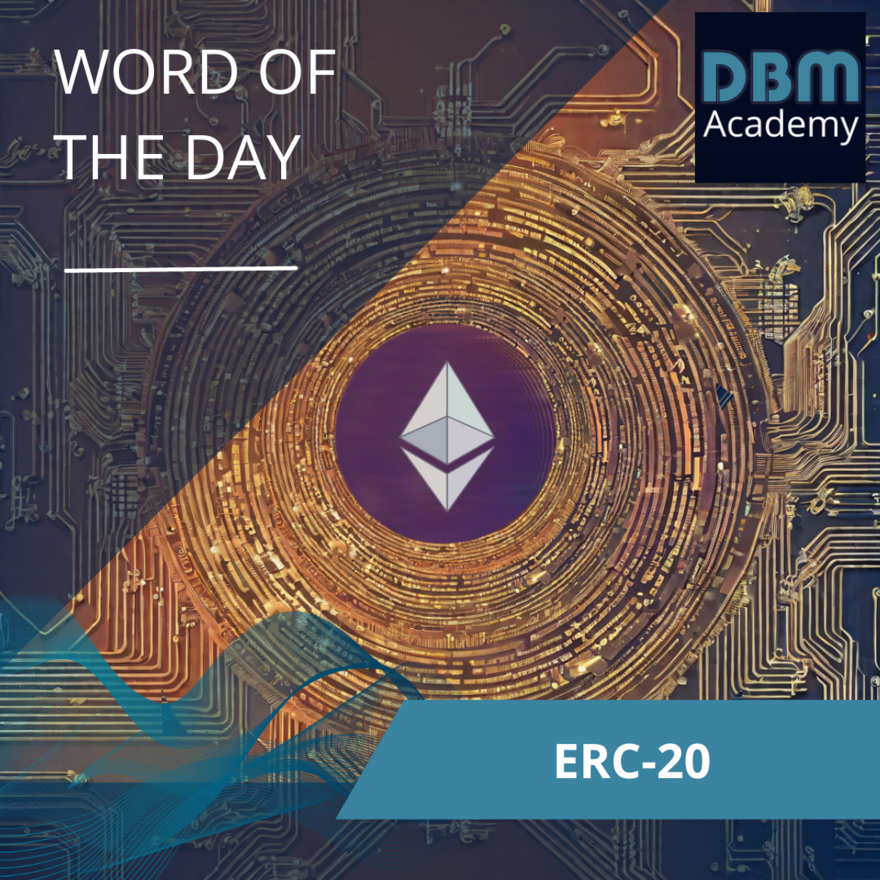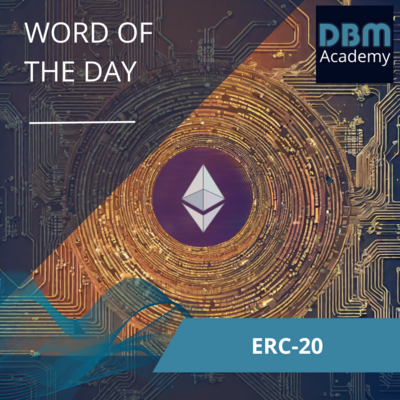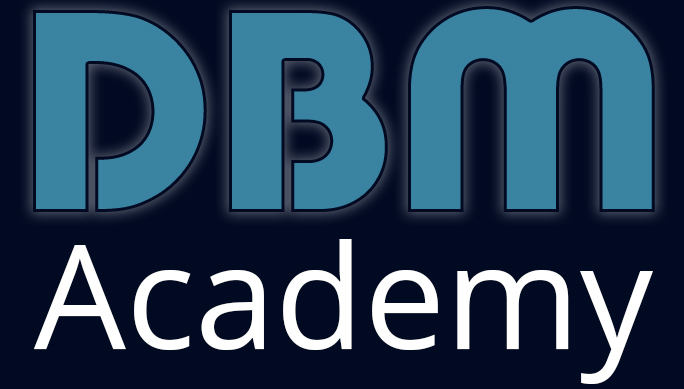Word of the Day | ERC-20

Word of the Day | ERC-20
ERC-20 is a widely adopted token standard on the Ethereum blockchain. ERC stands for Ethereum Request for Comment, and 20 represents the unique identifier for this particular token standard. ERC-20 tokens are fungible tokens, meaning that each token is identical in value and can be exchanged on a one-to-one basis with other tokens of the same type. Here's an explanation of ERC-20 and its uses:
1. Standardization: ERC-20 provides a set of rules and guidelines that developers can follow when creating their own tokens on the Ethereum blockchain. These rules ensure interoperability and compatibility between different ERC-20 tokens, making it easier for tokens to be integrated into various Ethereum-based applications and services.
2. Token Functionality: ERC-20 tokens can have various use cases and functionalities. They can represent digital assets, utility tokens for accessing specific services or platforms, or even serve as a medium of exchange within decentralized applications (DApps) and token economies. The ERC-20 standard defines how these tokens can be created, issued, transferred, and managed.
3. Exchange and Liquidity: ERC-20 tokens have played a significant role in the growth of cryptocurrency exchanges and liquidity. Their standardized format allows them to be easily listed and traded on various decentralized exchanges (DEXs) and centralized exchanges, enabling users to buy, sell, and trade these tokens freely.
4. ICOs and Crowdfunding: ERC-20 tokens have become the primary choice for Initial Coin Offerings (ICOs) and token-based crowdfunding campaigns. Using ERC-20 tokens, projects can raise funds by offering tokens to investors in exchange for other cryptocurrencies, typically Ethereum. These tokens represent ownership or participation rights in the project or platform.
5. Interoperability: Because many tokens on the Ethereum network follow the ERC-20 standard, it allows for seamless integration and interaction between different tokens and DApps. For example, a wallet that supports ERC-20 tokens can hold multiple types of ERC-20 tokens without needing separate wallets for each token.
 Overall, the ERC-20 standard has contributed to the growth and adoption of tokenized ecosystems within the Ethereum blockchain. It has become the foundation for numerous tokens, enabling developers to create and deploy their own tokens with ease.
Overall, the ERC-20 standard has contributed to the growth and adoption of tokenized ecosystems within the Ethereum blockchain. It has become the foundation for numerous tokens, enabling developers to create and deploy their own tokens with ease.
Other similar widely known token standards like TRC-20 (Tron) and BEP-20 (Binance Smart Chain) are not to be confused with ERC-20.
https://www.dbm.academy/faq for more blockchain vocabulary.
